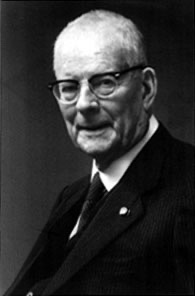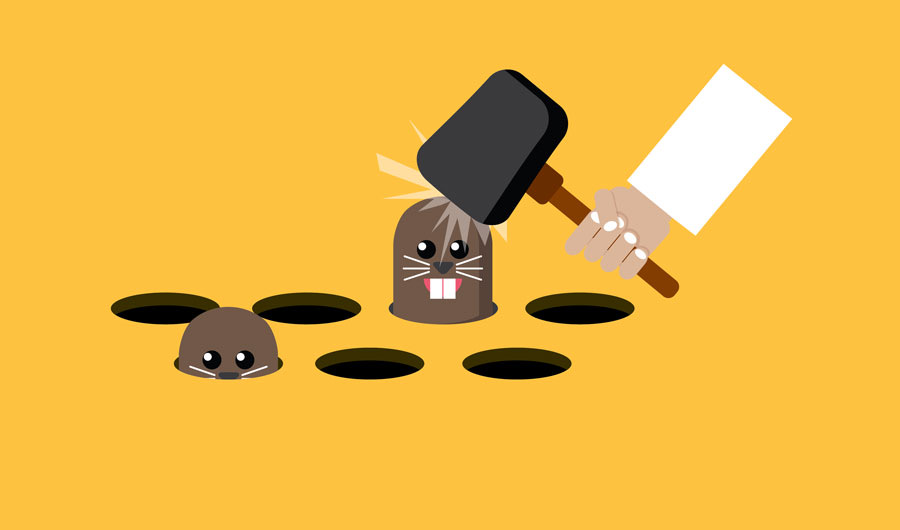This post continues my series on W. Edwards Deming and the impact his principles and philosophies have had on my life. Previous posts can be read HERE and HERE.
Deming is best known for his Fourteen Points for Quality Improvement and for his System of Profound Knowledge. Understanding how Deming’s ideas were transformative for my life, and Can potentially impact your own life, is made more difficult by the vocabulary and context of his work (primarily quality improvement in industrial settings).
Before engaging Deming’s System of Profound Knowledge, I thought it important to clarify the prevailing management paradigm Deming was addressing; and, hopefully, provide a backdrop against which the dramatic nature of necessary change and transformation can be understood.
After considerable pondering, I settled on Whack-a-Mole (WhaM) as a suitable metaphor.
An arcade game, whack-a-mole requires quick reflexes and acute visual and manual dexterity. Mechanical moles appear in random locations at unpredictable intervals. The game’s objective is to smash one mole with a mallet before another mole appears. Typically points are awarded for each whacked mole, with enough awarded points, a prize is won. Its popularity and difficulty resulted in the term whac-a-mole” (or “Whack-a-mole”) being used colloquially to denote a repetitious and futile task: each time a task is finished or a problem is dealt with, yet another task/problem appears elsewhere. (Wikipedia)
Deming’s primary audience was industry, more specifically the automotive sector. The goal of his principles and philosophies was quality improvement. However, he understood that his approach to quality improvement as universally applicable to all organizations. A common reality of human organizations is the necessity of good quality to be successful; quality defined as the degree to which performance meets expectations. No matter what organization, poor quality, is the bane of leadership and a constant threat to success, if not survival.
When organizations experience less than desired products and/or services, it is the result of defects and/or problems within the organization. The responsibility of leadership/management is to eliminate defects/problems i.e. improve quality.
The prevailing leadership paradigm for achieving quality in the auto industry, and, as a I came to understand, most organizations, is akin to WhaM, the Whack-a-Mole game. LIke a WhaM player in the arcade, management, with mallet in hand, diligently whacks at the randomly appearing moles (defects/problems) killing them; only to have another mole appear in a different location. The game continues endlessly. The player (manager) works hard and becomes more skilled with her mallet but the moles just keep coming.
Moles are representative of all defects/problems that contribute to poor quality. Whenever one appears management instinctively reacts with swift and decisive action, using the mallet at their disposal. Unfortunately, like WhaM, when one mole is slain another appears. Ultimately, management’s job is defined primarily as a mole killer. As someone has said, “When the only tool you have is a hammer, everything looks like a nail.”
Realizing that not all moles are not the same, and that one kind of mallet doesn’t work on different moles, over time, management developed and utilized many different mallets. Prominent mallets include: rules, regulations, manuals, policies, procedures, discipline, punishment, work harder, management by objective, quotas, slogans, performance reviews, bonuses, incentives, rewards, et al.
Despite a variety of mallets and diligent management, the auto industry found itself engaged in WhaM, frantically smashing moles with little progress toward achieving quality necessary for survival against Japanese competition. Achieving phenomenal success turning around Japanese industry following WWII, Deming brought his Theory of Profound knowledge to the U.S.
Profound Knowledge is a management philosophy grounded in systems theory. It is based on the principle that each organization is composed of a system of interrelated processes and people which make up system’s components. Profound knowledge is an understanding of the relationship between the essential components of systems. A fatal flaw of WhaM management is centered in the absence of system thinking.
Succeeding posts will focus on Dr. Deming’s Profound Knowledge confrontation with Whack-a-Mole
Because of the tedious nature of this subject, I want to state some reasons why I am persistent in writing on this subject. Hopefully, that will provide some impetus for readers to engage and wrestle with implications to their lives.
- I am confident that many organizations continue operate under WhaM management. This subject is personally relevant to me because organizations which I have been a member and/or a leader all struggle to achieve quality. Beyond business, church, family and academia are no exception. My name is George and I am WhaM addict.
- Understanding Profound Knowledge is life altering. Deming described the impact of Profound Knowledge:
“The individual, transformed, will perceive new meaning to his life, to events, to numbers, to interactions between people. Once the individual understands the system of profound knowledge, he will apply its principles in every kind of relationship with other people. He will have a basis for judgment of his own decisions and for transformation of the organizations that he belongs to. “My experience affirms Deming’s assertions.
- Profound Knowledge has not superseded or replaced my Christian faith, rather it has helped clarify powers and principalities that reside in me and work against spiritual growth and deeper faith. Essentially, I have a quality problem.
I hope you will continue to walk with me along this path less traveled. Thanks for reading.

